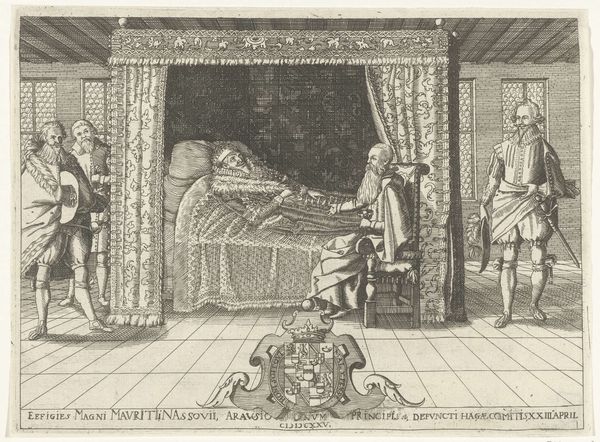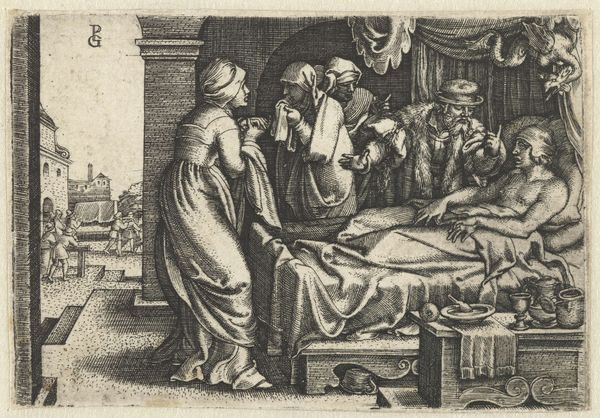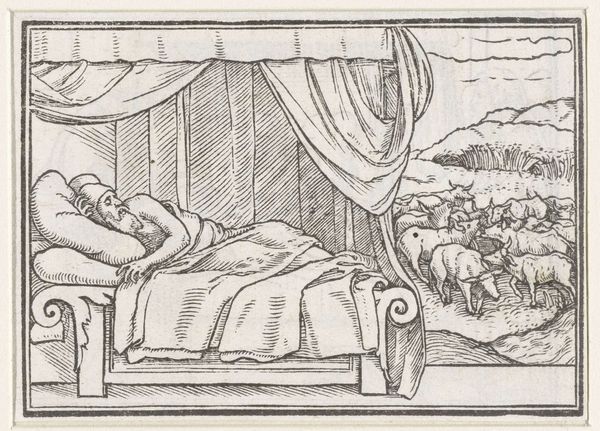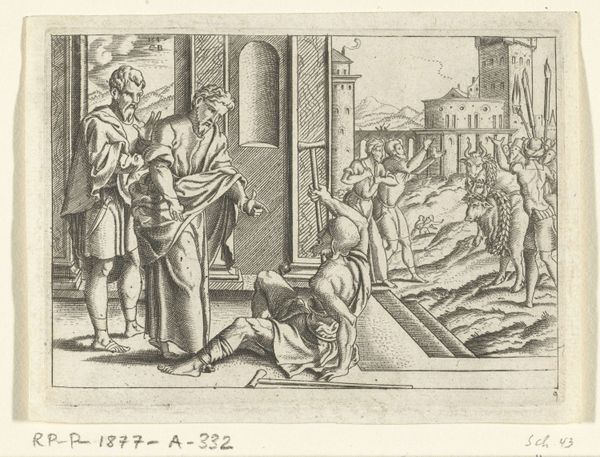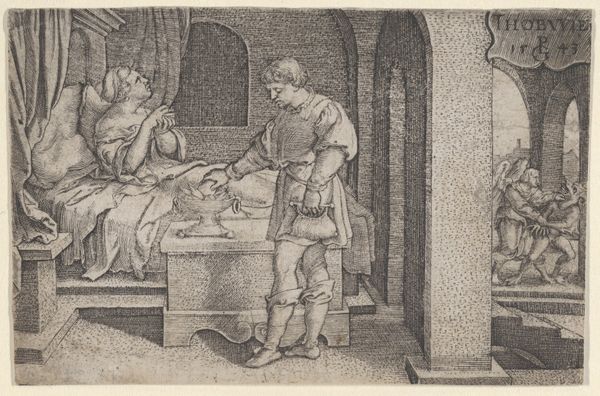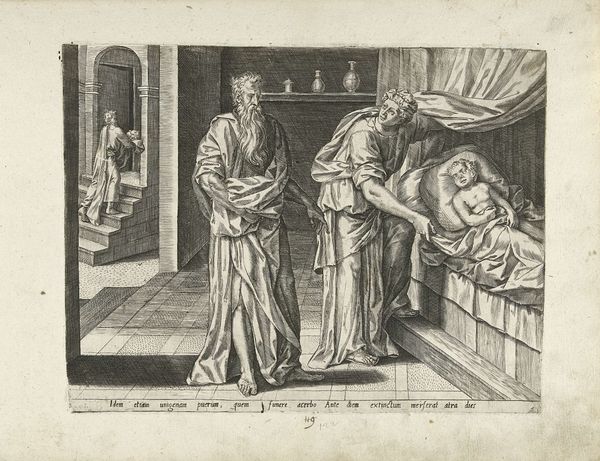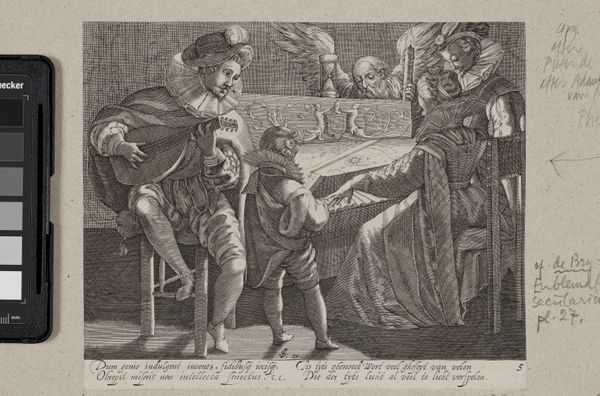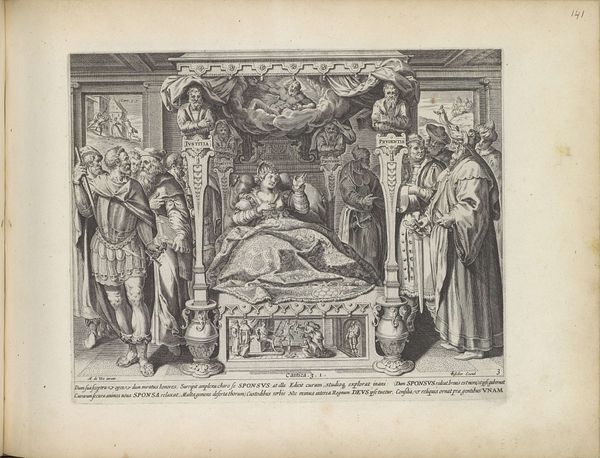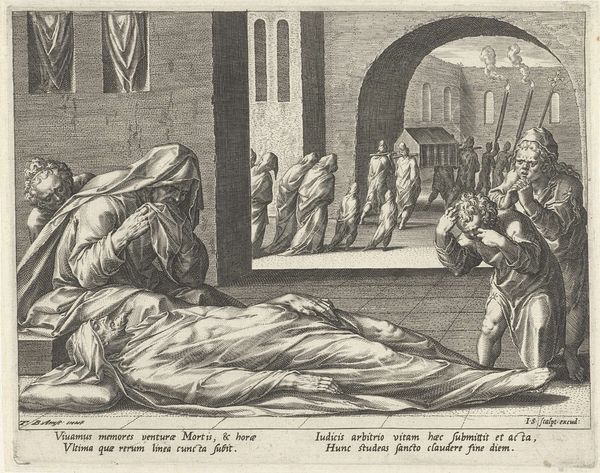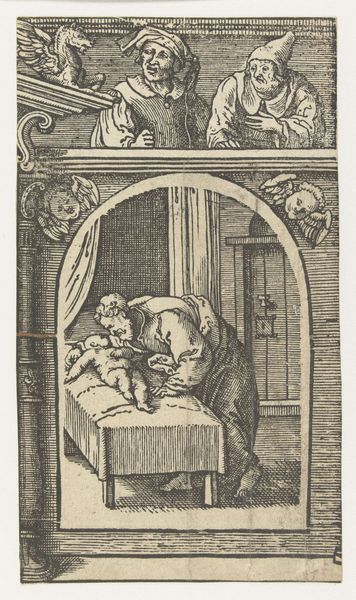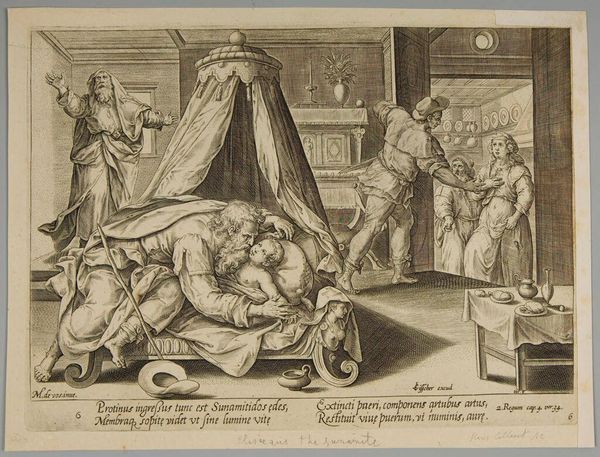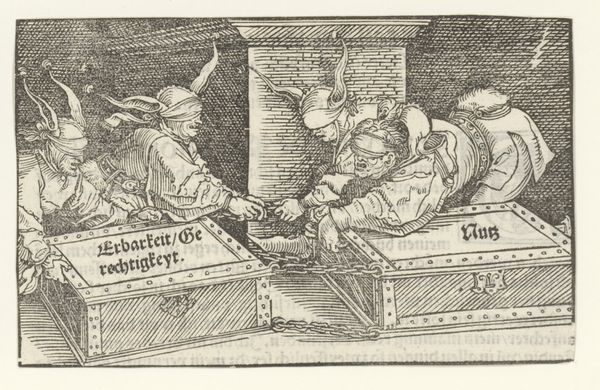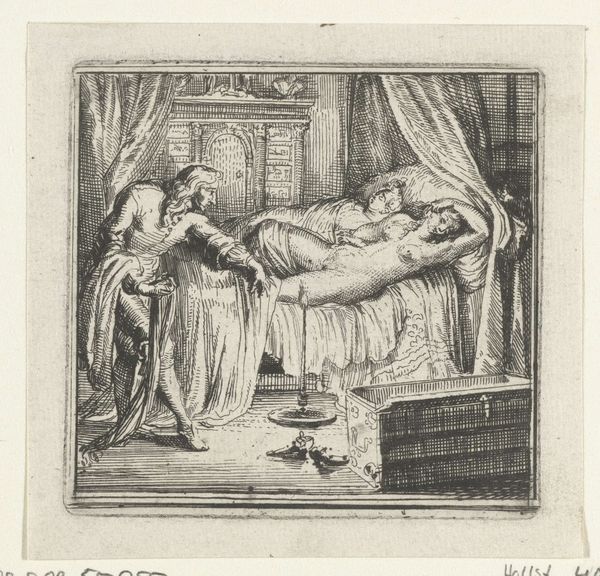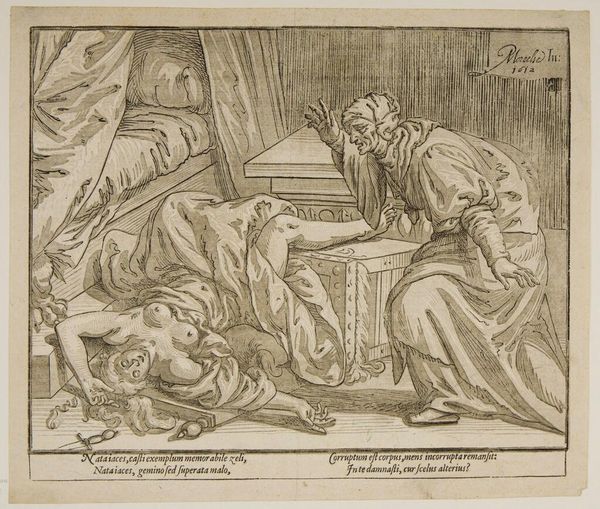
print, engraving
#
allegory
#
narrative-art
# print
#
figuration
#
form
#
line
#
history-painting
#
northern-renaissance
#
engraving
Dimensions: height 171 mm, width 362 mm
Copyright: Rijks Museum: Open Domain
Cornelis Anthonisz. created this allegory with woodcut, a relief printing technique on wood, in the 16th century. The artwork depicts a scene with several figures representing abstract concepts. The nature of the woodcut, with its strong contrasts and graphic quality, lends itself well to this allegorical representation. The process involves carving away the negative space, leaving the design to stand in relief. Ink is then applied to the surface and the image transferred to paper. The material and process carry significant cultural weight. Woodcut was a popular medium for disseminating information and imagery during the Renaissance. The act of carving and printing, a labor-intensive process, imbues the artwork with a sense of craft. The stark contrasts achieved through woodcut, and sharp lines create a dramatic visual impact. The relative ease and inexpensiveness of the technique democratized image-making, fostering broader access to visual culture. Ultimately, by understanding the materials, tools, and techniques employed in its creation, we gain a deeper understanding of the artwork's meaning, transcending traditional distinctions between fine art and craft.
Comments
No comments
Be the first to comment and join the conversation on the ultimate creative platform.
